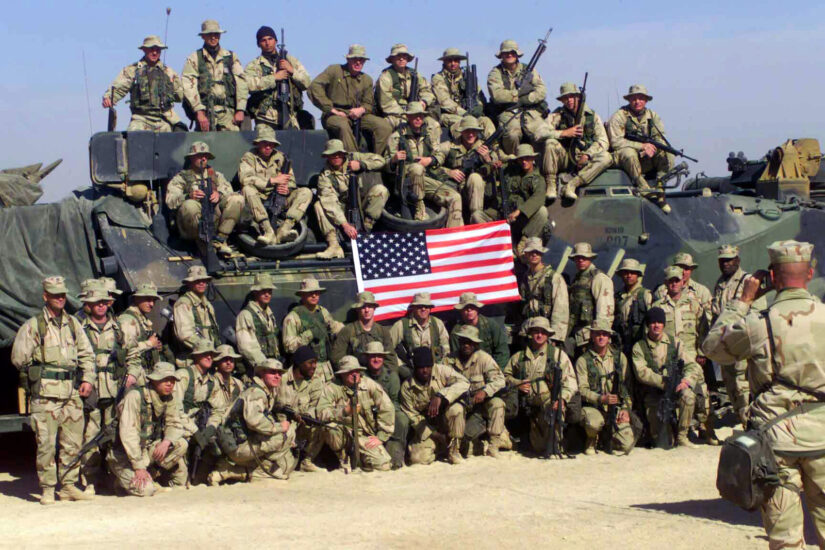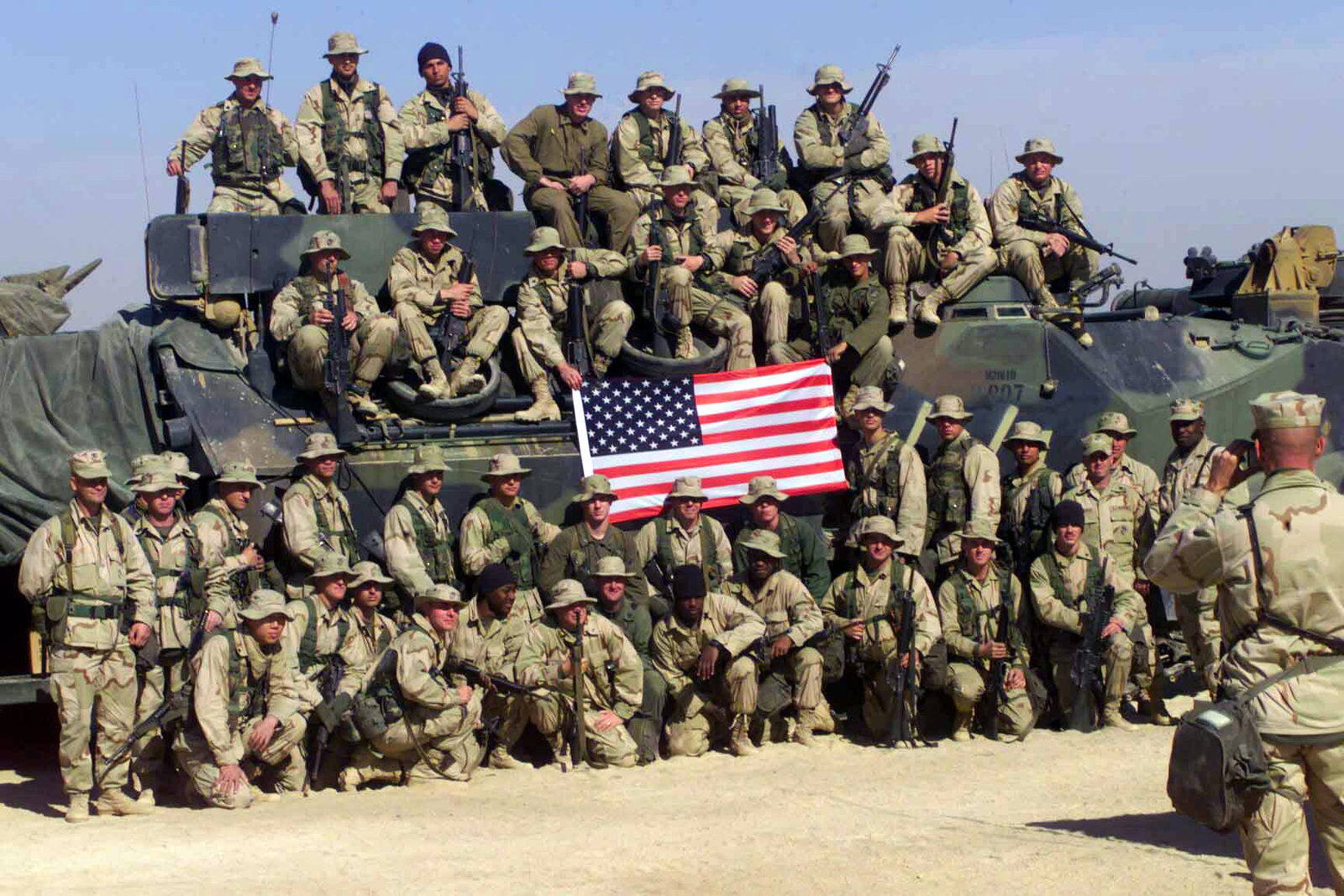BY: Mohammad Ghaderi

PEJOURNAL – Gradually, the voice of the US military power is becoming broken, which is heard today from Kabul Airport surrendering the world’s largest military power. The military, the world’s largest and most powerful army, is not even able to withdraw its troops from Afghanistan under normal circumstances, despite an agreement with the Taliban. This military defeat is not the only internal source to be sought in the divisions of American political identity and fragmented society. Numerous factors for this failure must be traced to the history and strategic mistakes of the United States over the past 20 years.
Throughout the last century, the United States has maintained its global credibility with global leadership, part of which was hegemony and part of which was military power. But US influence and hegemony waned during two decades of costly, fruitless wars in Afghanistan and Iraq planned by ideological strategists, and now with the US flag being lowered in Afghanistan by the Taliban in a painful scandal.
Kabul airport marked the end of US military power with the defeat of the Crusades against Muslims in the Middle East; And the unrivaled military power of the United States, which was absolute with the victory in World War II, ended in August 2021 with the breaking of the last strongholds of the Crusades at Kabul Airport.
Undoubtedly, the words of George W. Bush, who declared after 9/11 that we are at the beginning of a crusade and that I take the orders of war directly from God, are still alive in my memory. A statement that shaped 9/11 based on its structural and functional implications for the US political system and the structure of the international system. The fight against terrorism was formed and laid the groundwork for effective political and military legitimacy for military strikes on the countries in question in the context of a civilizational confrontation and ideological confrontation.
Highlighting the events of 9/11, Washington pursued the strategic goals of conservatives in the Middle East in foreign and security policy. This ideological approach by the Republicans was an anti-historical view of international processes and world order that culminated under Trump. If we look at the developments in US foreign policy since 2001, the countless pains and displacements of the people of Afghanistan, Iraq, Syria, Yemen, Libya and Somalia show that they believe in the Crusades in the plans of the presidential White House from both sides.
By adopting emotional strategies, the Bush Jr. administration was able to reproduce the American security structure in the form of ideological and geopolitical wars for a new Middle East order in foreign policy; And by intensifying the neo-conservative analytical pessimism towards Islamist social groups in the region, it created the necessary grounds for the spread of crisis and war. To ostensibly deal with such crises, Congress authorized the longest and most costly war in American history in Afghanistan with the passage of the Patriot Act. The law that gave war to US presidents was reminiscent of Truman’s law to intervene in World War I.
A few days after the passage of the Patriot Act, Bush Jr. announced in a speech to Congress the US military plans and stressed that he would send new US military power to war. Bush believed that the crusade against Islamists in the Middle East should begin with al-Qaeda and Afghanistan and spread to other countries in the region. From Bush’s point of view and the law of patriotism, this war was to end only when every single terrorist group with global access was identified, stopped, and finally disbanded.
With the support of this law, the Bush administration was able to take more preventive and precautionary measures against terrorism and immigrant groups and religious minorities within the United States in the form of security imperatives. Gradually, by enacting a number of provisions on immigration and security laws, the rules of residence, citizenship, immigration, and control of American citizens, especially Muslims, were enacted, which continued to be the most inhumane of Trump’s time.
After George W. Bush invaded Afghanistan, in a speech to the US Congress in 2002, he called North Korea, Afghanistan, Iran and Libya “Axis of Evil” and spoke of conservative ideas leading to a security culture or political militarism. The result of this approach after the invasion of Afghanistan led to wars against Iraq, Libya and then Syria. This security-mindedness was not only reproduced in the Republican mindset, but also in the social structure and political ideology of the Democratic Party in the Obama-Biden-era US invasion of Libya and Syria.
In Afghanistan, the world that Bush and Obama divided between us and our enemies and allies based on us or on us, both separated us from the United States as allies of the United States and made the Taliban victorious against us. Thus, the United States failed in both our “strategy” and the war against the “Taliban.” The defeat continues as high-ranking US officials announce surprise talks between the United States and the Taliban in order to withdraw their troops from Afghanistan. Such talks are also seen as “the peaceful surrender of US and NATO forces through negotiations with the Taliban.”
A war that was supposed to bring victory to the United States and its European and Asian allies, 20 years after George W. Bush declared the Crusades, the total cost of the Middle East mission to the United States exceeded $ 6 trillion. The so-called Crusades displaced tens of millions of people, killing more than half a million people, including about 7,000 American soldiers and about 8,000 private contractors working for the US military. More than one million Americans are currently receiving pensions for years of war and injury.
Certainly, from now on, the United States cannot easily mobilize anywhere and attack any group or country under the name of its own definitions and inventions, such as terrorism, the Crusades, or a mission from God. Washington must not forget that its first place of origin and destination in the fight against terrorism and the Crusades has changed. The destination is now seen as victorious by the Taliban and al-Qaeda, and the source is the United States and its allies, who have failed in the war on terrorism and al-Qaeda.
After 20 years of strategic confusion, what is happening is that the United States may no longer have to consider itself the firefighter of any crisis, and now it must be forced to withdraw American forces from different parts of the world that have caused insecurity and chaos.
The United States is now in a much more complex world than ever before and needs to make smart strategic decisions to maintain its position. America needs to understand that when it makes mistakes, competitors do not make mistakes, and when it works less, competitors work harder. Now with the presence of rival powers such as China, Russia and Iran in Afghanistan’s neighborhood, the defeat of US prestige in the Middle East cannot be repaired due to deep political and social gaps.
From now on, the United States must strive to secure its global interests without its military and hegemonic power, as well as with allies who, after Trump and Biden’s uninformed withdrawal from Afghanistan, did not trust the United States in the past.
The current situation in Afghanistan is just unplanned and inconclusive reactions to events, and from now on the United States needs a smart power strategy to recover instead of hard power, which can instead of thinking of power, produce the power of thought.
